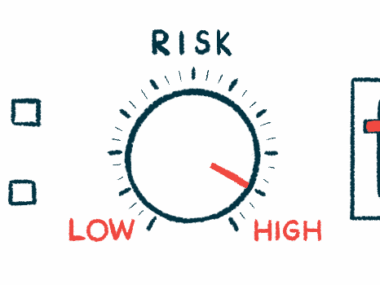Risk of NMOSD attacks is low after vaccination, review study finds
Such attacks were not found to be linked to any particular type of vaccine
Written by |

The risk of neuromyelitis optica spectrum disorder (NMOSD) attacks following vaccination is low, and such attacks have not been found to be associated with any particular type of vaccine, according to a review study.
Also, post-vaccine attacks tended to happen more frequently in men, patients negative for antibodies against the aquaporin-4 (AQP4) protein — the most common type of NMOSD-causing antibodies — and those with simultaneous symptoms of spinal cord and optic nerve involvement.
Larger studies are needed to identify potential predictors of NMOSD attacks post-vaccination, researchers noted.
“The low frequency of NMOSD attacks occurring after vaccination found in our work added with the fact that most of these attacks were the first attacks of the disease reinforces the safety of the recommendation for vaccination among NMOSD patients,” they wrote.
The study, “Risk and characteristics of attacks occurring after vaccination in patients with neuromyelitis optica spectrum disorders: A systematic review and meta-analysis,” was published in Multiple Sclerosis and Related Disorders.
Infections pose serious risk to NMOSD patients
NMOSD is a rare autoimmune disease in which self-reactive antibodies attack healthy nervous system cells, leading to inflammation and damage to the spinal cord and optic nerve, which transmits signals between the eyes and the brain.
“Infections are one of the main cause of death in patients with NMOSD and might be associated with an increased risk of attack,” the researchers wrote, adding that “strategies to prevent infections such as vaccines are relevant for patients with NMOSD.”
However, much like infections, vaccines and other environmental factors that activate the immune system have been proposed as potential triggers of NMOSD attacks. A handful of studies have reported cases of NMOSD onset or exacerbation in the days or weeks following common vaccinations, including those against influenza or COVID-19.
While such reports can lead to vaccine hesitancy for patients who are worried about their health, a true cause-effect relationship between vaccines and NMOSD attacks has not been established.
In the study, a pair of researchers in Brazil conducted a systematic review of published research up to February 2022 reporting cases of NMOSD attacks after vaccination and the features of these attacks to learn more about these events.
A total of 21 studies, evaluating 13 different vaccines, including those against COVID-19, tetanus, influenza, and hepatitis, were included in the review.
Five studies involving 377 NMOSD patients were included in a meta-analysis of the risk of NMOSD attack after vaccination.
Current evidence not only suggest vaccines are generally safe in patients with NMOSD, but also points that vaccines may reduce annualized relapse rate, possibly [through] the decrease of infection-associated relapses.
7 patients (1.9%) experienced NMOSD attack within 30 days after vaccination
Results showed that seven of these patients (1.9%) experienced an NMOSD attack within 30 days after receiving a vaccine: three (0.8%) as an initial disease attack and four (1.1%) as a relapse.
The vaccine-associated attack frequency was 2%, reflecting “a low frequency of NMOSD attacks in the 30 days after vaccination,” the researchers wrote.
The researchers analyzed clinical descriptions of post-vaccine NMOSD attacks from 17 studies, including 24 patients, ages 15-87 years, about half of whom were male. For most of these patients (70.8%), these attacks represented the initial event of NMOSD.
The most frequent manifestation of the attack was myelitis or spinal cord inflammation (70.8%), followed by optic neuritis or optic nerve inflammation (40%) and area postrema syndrome (12.5%), which is marked by uncontrollable nausea, vomiting, and/or hiccups.
More than a quarter of patients (29.2%) experienced simultaneous attacks in multiple regions, with 20.8% experiencing myelitis and optic neuritis at the same time.
About two-thirds of patients (66.7%) tested positive for anti-AQP4 antibodies. Patients without such antibodies were more likely to present with optic neuritis or multi-regional attacks than those with these antibodies.
The researchers noted that a greater-than-expected proportion of patients experiencing NMOSD attacks after vaccination were men, were negative for anti-AQP4 antibodies, or had simultaneous myelitis and optic neuritis.
Still, that finding “should be interpreted with caution,” the researchers wrote, especially in light of the fact that few patients were included in the analysis.
Vaccines are still recommended for NMOSD patients
While a number of different mechanisms have been proposed to explain the relationship between vaccination and autoimmune attacks, some don’t account for the fact that such responses don’t seem specific for particular vaccines.
The most likely culprits for these attacks are vaccine adjuvants, a type of additive included in most vaccines to induce a strong, but non-specific immune response in the recipient that makes the vaccine more effective, the researchers suggest.
“Because a wide range of vaccines was associated with attacks, the stimulation of autoreactive cells by vaccine adjuvants is more likely to be related to the [underlying mechanisms] of most cases of post-vaccination NMOSD,” they wrote.
Nevertheless, the risk of such events remains low, and vaccines are still recommended for NMOSD patients, the researchers emphasized.
“Our study is limited by the small sample size and the significant rate of missing data, which compromised our evaluation of the predictors of NMOSD attacks occurring after vaccination,” they added.
However, a higher proportion — four in seven (57%) — of patients who experienced post-vaccination disease relapse were not on immunosuppressive therapies. This is consistent with a previous study showing that among NMOSD patients on immunotherapy, those who received vaccines were at a lower relapse risk than those who did not.
“Hence, current evidence not only suggest vaccines are generally safe in patients with NMOSD, but also points that vaccines may reduce annualized relapse rate, possibly [through] the decrease of infection-associated relapses,” the researchers wrote.







